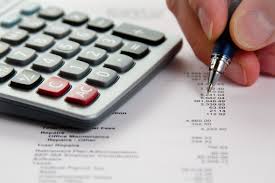Definition of Journal Voucher
Journal Voucher can be defined as the form of original entry of government transactions as and when they occur by debiting and crediting two separate accounts with equal amounts and a narration thereon.

When the financial transactions take place in the government office, they have to be recorded systematically in the books of accounts under the new accounting system. Recording of all such government financial transactions begin with the preparation journal voucher. The journal voucher, the journal voucher, therefore, is called the form of original entry. It is prepared on the basis of the principles of double-entry. The journal coucher is prescribed by the Office of the Auditor’s Generaland hence is coded AGF No.10. A Journal voucher is essential for preparing subsequent ledger accounts. It is prepared by the central level as well as operating level offices for maintaining the systematic records of financial transactions of government officials.
Meaning of Journal Voucher
A journal voucher is an accounting form coded AGF No.10 for the use of recording government financial transactions. It is used as a form of original entry of government transactions. based on which subsequent books of accounts are posted. It is like the journal book of a business concern. Every government transaction is first recorded in the journal voucher with debit and credit and a narration of the transaction.
The objective of the Journal voucher
A Journal voucher is an essential document for government offices. Without preparing a journal voucher, the subsequent ledger accounts can not be prepared. The main objective of journal vouchers are as follows:
1. It makes a systematic and permanent record of financial transactions of government offices in chronological order.
2. To show debit and credit aspects of accounts of each financial transaction of government offices.
3. To show the record of financial transactions in chronological order.
4. To present detailed information about the financial transaction of government offices.
5. To use as legal evidence of financial transactions of government offices.
6. To facilitate preparing the subsequent ledger accounts and other necessary financial statements.